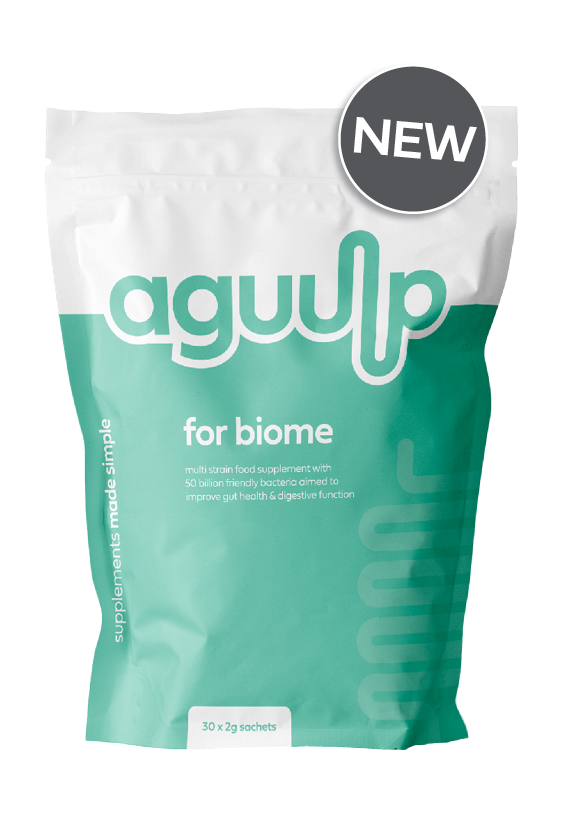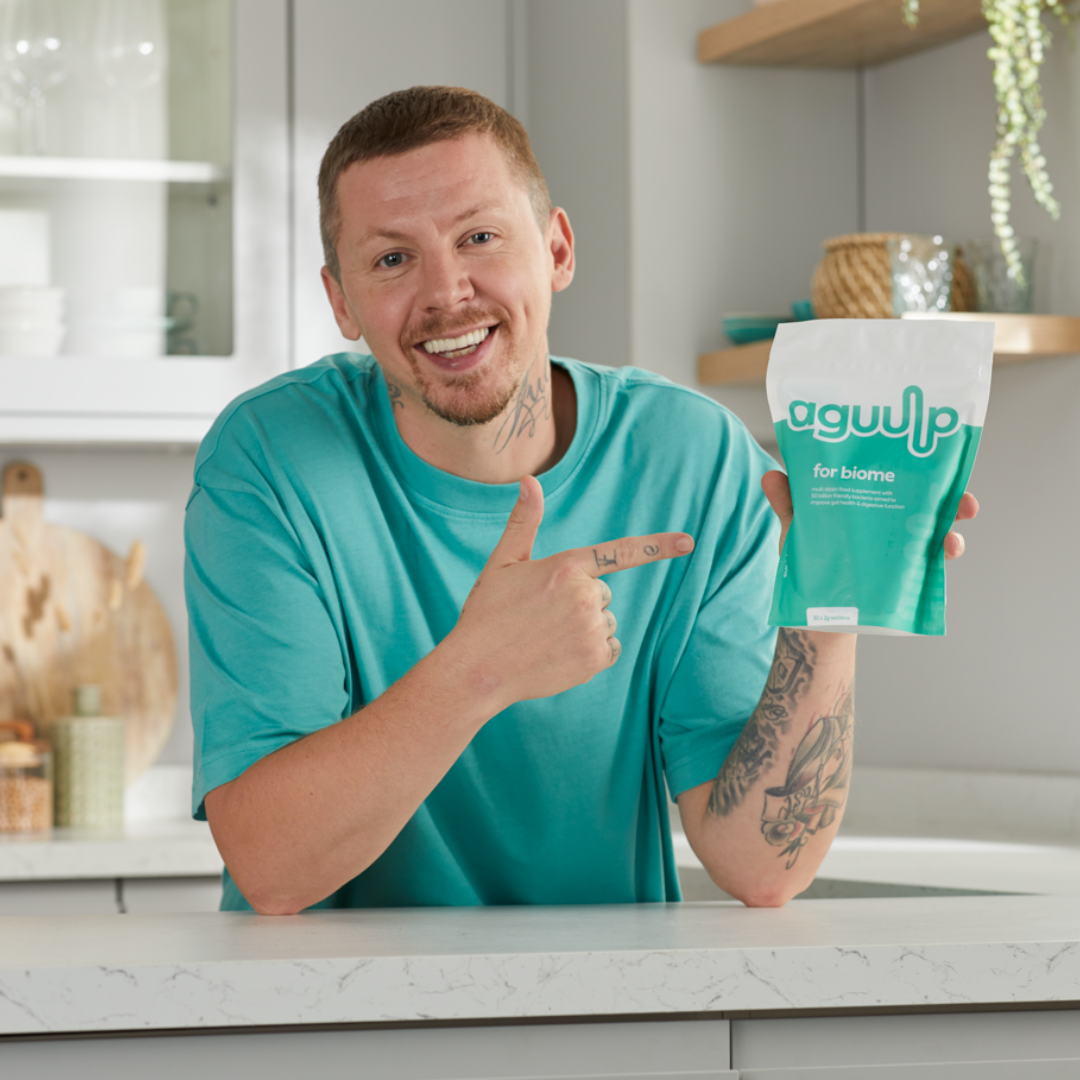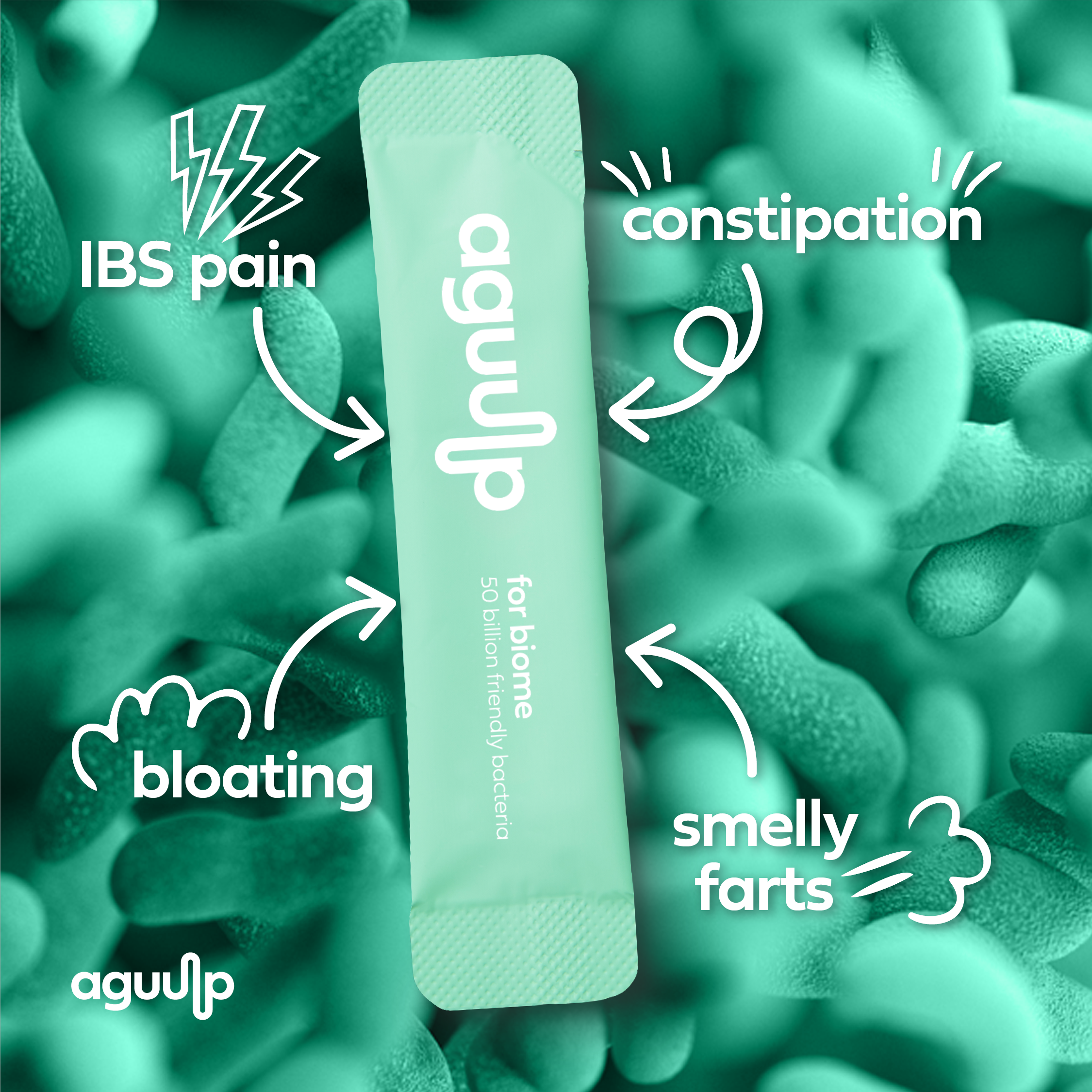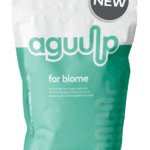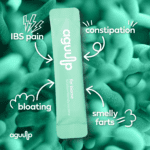Constipated? We recommend... aguulp for biome
supporting your gut health and helping to reduce symptoms of constipation, one sachet at a time.
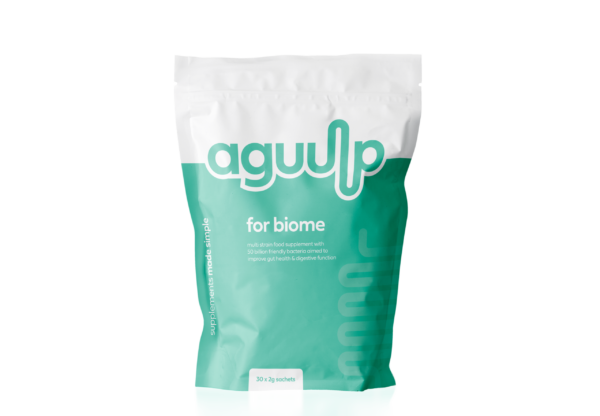
powerful gut probiotic

In need of constipation supplements?
Constipation can be caused by many different factors, including a poor diet that’s low in fibre and plant-based foods, dehydration, certain medications, underlying health conditions, stress, and a sedentary lifestyle. All of these can make your bowel movements less frequent than usual, causing discomfort and other symptoms.
But don’t worry, all is not lost – aguulp is here to help. Our gut probiotic is one of the best supplements for constipation and all-round gut health support.
aguulp for biome probiotic supplement
aguulp for biome is a probiotic supplement with 50 billion friendly bacteria and prebiotics, aiming to help rebuild your gut health.
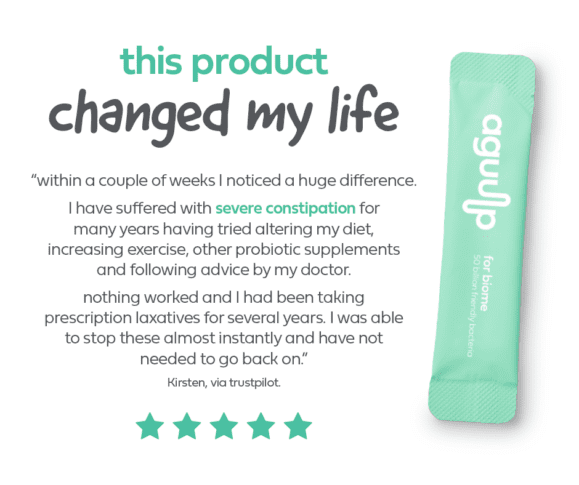
don’t just take our word for it…
aguulp products have helped people reduce their symptoms of constipation**.
how aguulp may help with your constipation*
Try taking our gut probiotic for constipation, as it contains specifically chosen bacterial strains in high quantities to ensure it improves symptoms of bad gut health, including constipation.
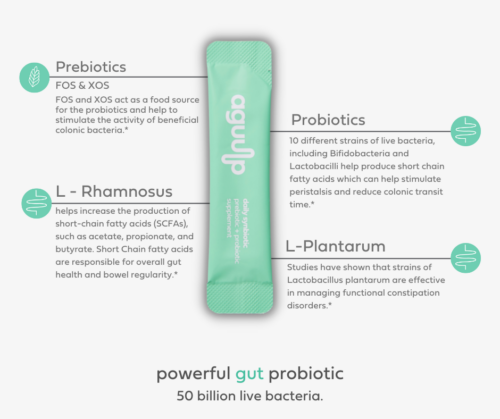
* The MHRA/FSA only evaluates foods and drugs, not supplements like these products. This product is not intended to diagnose, treat, cure or prevent any disease.
** These are real reviews from customers, and they show what is possible with aguulp, however, we can’t guarantee results with any aguulp products.
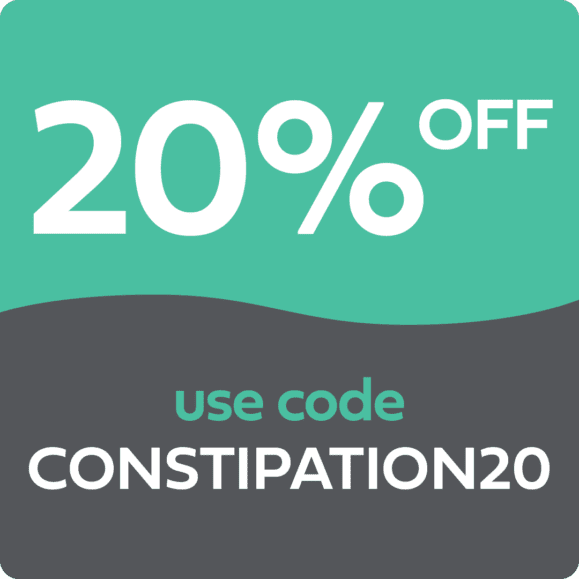
your new health journey starts today.
It takes guts to change your lifestyle – and we believe in you.
get startedit's what's inside that counts
how do probiotics help with constipation?
Keep everything flowing freely by taking our aguulp gut probiotic for constipation. Our easy-to-take formula contains both prebiotics and probiotics.
- Prebiotics such as FOS and XOS act as a food source for the probiotics and help to stimulate the activity of beneficial colonic bacteria
- Probiotics such as Bifidobacteria and Lactobacilli help produce short chain fatty acids which can help stimulate peristalsis and reduce colonic transit time
- Studies have shown that strains of Lactobacillus plantarum are effective in managing functional constipation disorders
L. rhamnosus helps increase the production of short-chain fatty acids (SCFAs), such as acetate, propionate, and butyrate. Short Chain fatty acids are responsible for overall gut health and bowel regularity
FOS & XOS

10 bacterial strains

L. rhamnosus

Lactobacillus plantarum

how can it help my constipation?
- Prebiotics such as FOS and XOS act as a food source for the probiotics and help to stimulate the activity of beneficial colonic bacteria
- Probiotics such as Bifidobacteria and Lactobacilli help produce short chain fatty acids which can help stimulate peristalsis and reduce colonic transit time
- Studies have shown that strains of Lactobacillus plantarum are effective in managing functional constipation disorders
- L. rhamnosus helps increase the production of short-chain fatty acids (SCFAs), such as acetate, propionate, and butyrate. Short Chain fatty acids are responsible for overall gut health and bowel regularity

So, what’s happening in my body when I’m constipated?
Constipation can present differently for different people, depending on the root cause. For some people, constipation may mean reduced stool frequency (typically less than 3 motions per week), difficulty in passing a stool or straining, or experiencing more lumpy, harder stools. For others, constipation can be experienced as a sensation of incomplete evacuation and may be associated with abdominal discomfort. A condition known as ‘dysbiosis’ (imbalance of beneficial and pathogenic gut bacteria) is also commonly associated with constipation.
However you experience it, you may want to try constipation supplements to help look after your gut and keep things moving.
top tips for relieving constipation
- Stay hydrated – make sure you’re drinking plenty of water to prevent dehydration of your stools, as this can stop things moving as freely.† The estimated daily requirement for adults is approx. 2 litres (this includes herbal and fruit teas)
- Eat plenty of fibre – maintaining a diet that’s rich in fibre can help to prevent constipation. This is because fibre is needed to promote healthy bowel movements and to cleanse the colon.
- Stay active – research shows that moderate physical activity has positive effects on the health of the Gastrointestinal tract, and that people who are physically active are less likely to be constipated
- Take probiotics for constipation support – incorporate aguulp gut probiotic in your daily routine to support your gut health. They’ll soon become your go-to supplements for constipation relief thanks to their fast-acting liposomal formula, designed for maximum absorption
†Needs may vary according to individual requirements/levels of physical activity. If you are not currently consuming this amount of water per day, you should build up to this daily amount, gradually.
* The MHRA/FSA only evaluates foods and drugs, not supplements like these products. This product is not intended to diagnose, treat, cure or prevent any disease.
** These are real reviews from customers, and they show what is possible with aguulp, however, we can’t guarantee results with any aguulp products.
our research sources
at aguulp, it’s important to us that any research and findings we use are sourced correctly and from appropriate sourcing. We’ve done the hard work so you don’t have to, but if you want some ‘light reading’, view our sources here:
- 1.Choi CH, Chang SK. Alteration of gut microbiota and efficacy of probiotics in functional constipation. J Neurogastroenterol Motil. 2015 Jan 31;21(1):4-7. doi: 10.5056/jnm14142. PMID: 25611063; PMCID: PMC4288092
- Zhang C, Zhang Y, Ma K, Wang G, Tang M, Wang R, Xia Z, Xu Z, Sun M, Bao X, Gui H, Wang H. Lactobacillus plantarum Lp3a improves functional constipation: evidence from a human randomized clinical trial and animal model. Ann Transl Med. 2022 Mar;10(6):316. doi: 10.21037/atm-22-458. PMID: 35434041; PMCID: PMC9011319.
- LeBlanc JG, Chain F, Martín R, Bermúdez-Humarán LG, Courau S, Langella P. Beneficial effects on host energy metabolism of short-chain fatty acids and vitamins produced by commensal and probiotic bacteria. Microb Cell Fact. 2017 May 8;16(1):79. doi: 10.1186/s12934-017-0691-z. PMID: 28482838; PMCID: PMC5423028.
- Sabater-Molina M, Larqué E, Torrella F, Zamora S. Dietary fructooligosaccharides and potential benefits on health. J Physiol Biochem. 2009 Sep;65(3):315-28. doi: 10.1007/BF03180584. PMID: 20119826.
- Iovino P, Chiarioni G, Bilancio G, Cirillo M, Mekjavic IB, Pisot R, Ciacci C. New onset of constipation during long-term physical inactivity: a proof-of-concept study on the immobility-induced bowel changes. PLoS One. 2013 Aug 20;8(8):e72608. doi: 10.1371/journal.pone.0072608. PMID: 23977327; PMCID: PMC3748072.
